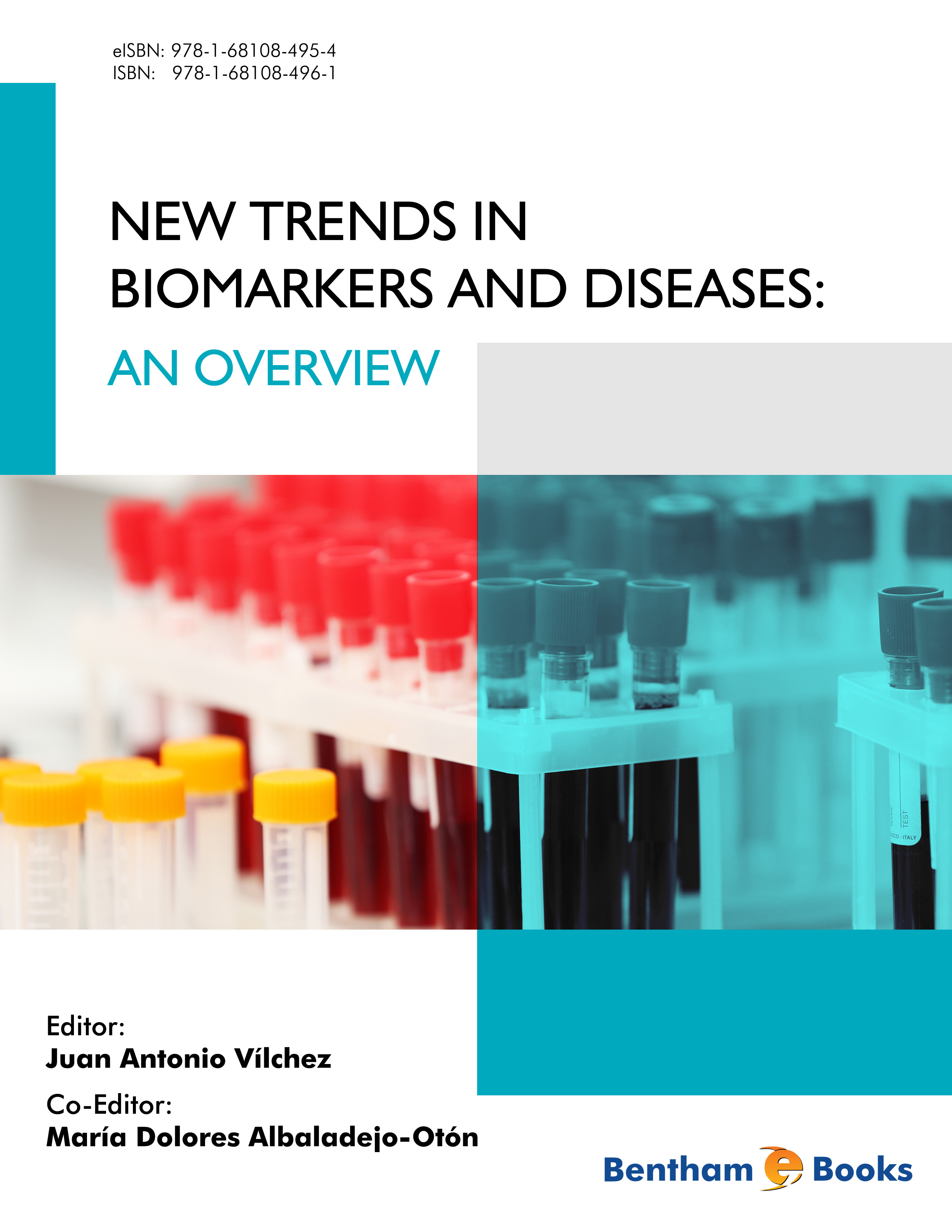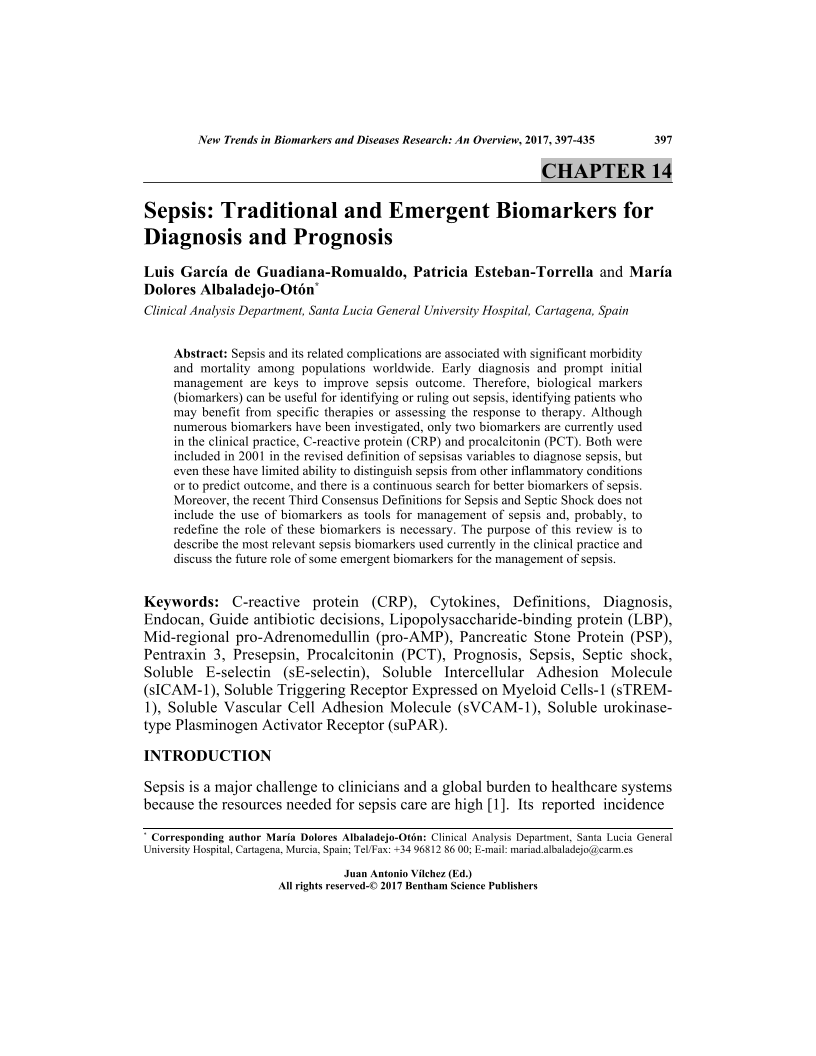Sepsis: Traditional and Emergent Biomarkers for Diagnosis and Prognosis

- Authors: Luis García de Guadiana Romualdo, Patricia Esteban-Torrella, María Dolores Albaladejo-Otón3
-
View Affiliations Hide Affiliations3 Clinical Analysis Department, Santa Lucia General University Hospital, Cartagena, Spain
- Source: New Trends In Biomarkers and Diseases Research: An Overview , pp 397-435
- Publication Date: September 2017
- Language: English
Sepsis: Traditional and Emergent Biomarkers for Diagnosis and Prognosis, Page 1 of 1
< Previous page | Next page > /docserver/preview/fulltext/9781681084954/chapter-14-1.gif
Sepsis and its related complications are associated with significant morbidity and mortality among populations worldwide. Early diagnosis and prompt initial management are keys to improve sepsis outcome. Therefore, biological markers (biomarkers) can be useful for identifying or ruling out sepsis, identifying patients who may benefit from specific therapies or assessing the response to therapy. Although numerous biomarkers have been investigated, only two biomarkers are currently used in the clinical practice, C-reactive protein (CRP) and procalcitonin (PCT). Both were included in 2001 in the revised definition of sepsisas variables to diagnose sepsis, but even these have limited ability to distinguish sepsis from other inflammatory conditions or to predict outcome, and there is a continuous search for better biomarkers of sepsis. Moreover, the recent Third Consensus Definitions for Sepsis and Septic Shock does not include the use of biomarkers as tools for management of sepsis and, probably, to redefine the role of these biomarkers is necessary. The purpose of this review is to describe the most relevant sepsis biomarkers used currently in the clinical practice and discuss the future role of some emergent biomarkers for the management of sepsis.
-
From This Site
/content/books/9781681084954.chapter-14dcterms_subject,pub_keyword-contentType:Journal -contentType:Figure -contentType:Table -contentType:SupplementaryData105

